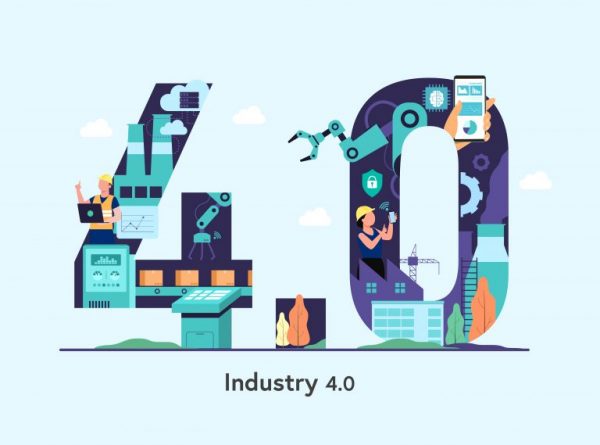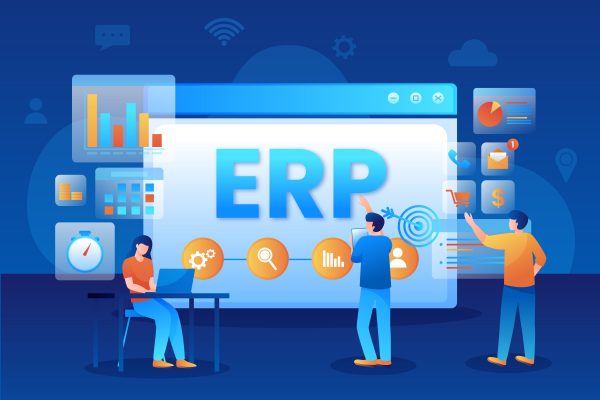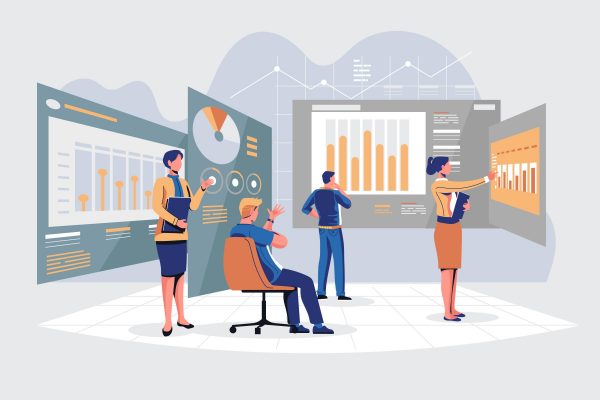ERP is a dream that many businesses aim for in the era of applying information technology to business management. But the question is: How to implement ERP? Which supplier to choose? How’s the budget? What is the project timeline? Resources include what? How to ensure a successful ERP project?
Many questions need to be answered before an enterprise can apply an ERP system—many successes but also many failures.
The article will help businesses initially get the necessary view before implementing an ERP project.
Tìm hiểu thêm: Các nguyên nhân thất bại của Dự Án ERP
1. Assessing Business Needs
The first question when implementing a project is “Why do businesses need it? What are the business needs?
First, businesses need to look at reality:
What management is needed?
What problems are making it difficult to manage at the moment?
What issues are hindering development at present?
Future development needs.
Budget for the project.
Enterprises need to understand the difficulties as well as the need to determine which system to choose. Is it necessary to be an ERP or just an Accounting/Sales Management/Distribution/…

2. Prepare Human Resources
To implement an ERP system, human resources – here are people – are extremely important. Resources are talking not only in the business itself but also in the ERP Implementation Service Provider.
Regarding businesses, it is necessary to prepare a project team:
Project leader: should be in a key position, understand the company well, can make decisions, as well as be able to direct people in the company when it is necessary to perform the work in the project. The project leader needs to closely monitor the project plan to ensure it is on schedule. Currently, some companies also hire a third party to help manage the project. However, the person who has the ability to make the decision must be from the company.
Project members: should have key positions in positions to give opinions/decisions when needed. Team members need to spend most of their time on the project to ensure it is on schedule.

Qualification: the project team – besides professional knowledge – needs certain knowledge about system/software/office informatics/communication skills to meet work needs. In case of necessity, enterprises can allow employees to participate in courses on systems, ERP, etc., so that employees can change their way of thinking, to understand that ERP is a system of linkage, exchange, and inheritance. information between departments.
Not only the project team but also the Board of Directors who are knowledgeable about ERP will help the project go quickly, if there is no understanding and clear thinking, it will make the project stagnate and prolonged.
It should be understood that ERP software is just a tool, the supplier helps businesses understand this tool, once understood, the operation of that tool is in the most suitable way for the business, only the business knows. Okay.
In addition, the application of ERP does not have to help businesses make an improvement, 100% control, it is necessary to consider the current resources in the business to determine how much improvement is appropriate, The operation process will then continue to improve after a while.
Evaluate changes in human resources during implementation: if human resources are unstable, the project may take a long time.
3. Supplier Selection
One of the headache steps for businesses is choosing an ERP solution provider. In the current market, there are many suppliers, both domestic and foreign. How to choose the right supplier is a process of learning, reviewing, and evaluating the business.
Enterprises need to determine the scope of implementation and budget for the project. Then prepare a list of Enterprise requirements to send to Suppliers. Based on the feedback from the Suppliers, the enterprise considers and evaluates, makes a decision on which Supplier to contact to introduce the solution.

Enterprises should prepare scripts according to business processes to send to Suppliers and request to perform simulations on software according to these scenarios. Consider how responsive each system is.
In addition, Enterprises can also hire a Consultant to search for a suitable supplier.
Currently, the school has many suppliers with solutions both at home and abroad.
4. Building the Project Scope
After understanding the needs, businesses have partly determined the scope of work and budget for the project. However, once a supplier has been selected, businesses need to develop more basic details for the work to be performed, objectives, and evaluation methods.
Building the scope of work is very important. It affects the progress and results of the project. Many businesses do not clearly define the scope of work with the supplier, leading to a large, widespread, and unmanageable scope of work. That leads to protracted and possibly failed projects.
5. Planning and Monitoring Project Progress
The project must have a specific plan and working time for each phase. The role of the Project Manager is very important in planning, monitoring project progress, making timely business process decisions, and coordinating resources to ensure the project is on schedule. Through each phase, there should be a summary to evaluate the completion level as well as consider the implementation for the next phase.
6. Prepare Infrastructure
To deploy the ERP system, businesses need to have infrastructure: servers, computers, transmission lines, .. (if the software is on-premise, if it is Cloud, it is not necessary but must care about transmission lines and problems. more security issues). Each ERP system will have minimum requirements for this infrastructure. Enterprises need to ask the supplier clearly to assess the level of investment for the current and future infrastructure.
Depending on the situation, businesses can invest in a server system located in the office. This helps businesses be proactive in maintaining and maintaining the system. However, businesses need resources to serve this. Businesses can also rent servers from Server Providers. However, it is necessary to understand the Server Provider clearly to ensure the system is stable and always has backup when problems arise from the Provider’s system. Businesses should have an assessment to make a decision to invest or rent a server system.
7. Prepare Processes, Data, and Reports/Documents
Enterprises need to build a specific set of work processes for each department, the role of employees in each department, and the work link between each department. ERP is a unified and legacy system: the output of one department’s business will be the input in another.
The process of unifying the process can be controversial among departments when it has to be reorganized, leading to the work previously done by this department, and for the future process, it will be reassigned to another department. Or the application of ERP software but want to apply the same old process.

Enterprise data needs to be standardized when transferring to the ERP system. Especially for important data sets such as Customers, Products, Warehouses, Inventory, Suppliers, Accounting Sets, etc. At the same time, relevant Reports/Documents need to be prepared in advance to ready to provide to the Deployment Unit. Standardizing processes, data and preparing reports/documents will help accelerate project progress.
There are many late ERP projects stemming from the data preparation step, especially if the enterprise has deployed the Production Management module, the determination of the production process (including which production stages, How to set the standard of machine hours, and labor, …) is very time-consuming.
In addition, depending on the characteristics of each business, the list related to Products, Materials, Packaging, and Tools, … up to several tens of thousands, the review and standardization also take up a lot of time. & power.
For Process and Data Transformation, the role of the decision maker is very important, usually the CEO of the company. Only determination and decisiveness can overcome this step so that the project is not prolonged.
Of course, there are many more issues that need to be prepared before determining the implementation of an ERP system, the above are just some shared experiences.
More Reference: Causes of ERP Project Failure
Contact us now to receive advice, share more facts…

We can help your business:
– Identify business needs and give scope.
– Assist in the selection of Deployment Vendors.
– Support in Project Management on behalf of your business.
– Support consulting preparation steps.








